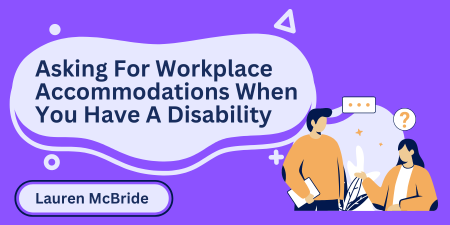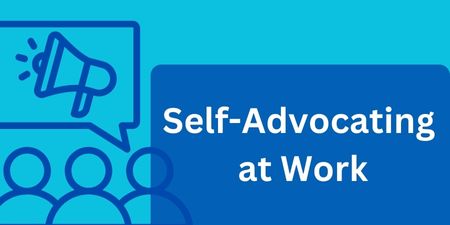How to Prepare for A Virtual Interview
- Blog: Working from Home: Tips for WAM Graduates
- AHEAD & USI Students with Disabilities Advisory Group
Due to the lockdown, most people are now working from home, and with that many employers are adapting to recruiting online and using virtual interviews. Virtual interviews will usually be competency based interviews, you can find more information on preparing for competency based interviews on our blog here. This blog will help give you information about what it takes to have a successful virtual interview so you can let your experience and skills do that talking and not worry about the camera!
Technology
- Ask in advance what technology will be required and what you will need for the interview. Typically, you will need access to a camera and a microphone, your smartphone will probably be all you need or a laptop if you have one.
- Ask what platform will be used to do the interview, there is a number of different platforms employers might use such as Zoom, WebEx, Google Hangouts, Microsoft Teams and Skype. Make sure you familiarise yourself with whatever platform will be used and download any app in advance – you don’t want to be late for your interview waiting for the software to download.
- Ask the employer if they could do a trial run for 5 minutes if you have never used the technology before, or ask your friends or family members so you don’t have to worry about using a new technology and can focus on your answers.
Set-Up
Employers should be understanding that nobody is working with an ideal setup. However, to try and settle nerves and get in the right headspace, it is important to think about the best place to conduct your interview.
- If possible, find a quiet private place and let everyone in your household know you have an interview in advance to prevent interruptions. If you’re worried about your internet connection, sit close to the modem. Better yet, use an Ethernet cable to connect directly from the modem to your laptop if you have one.
- Make sure the background behind you is neutral. You want the focus for employers doing the interview to be the answers you’re giving and letting yourself share why you’re the best fit for the role. Having a messy bedroom or posters behind you can mean employers unconsciously pick up on thing and distract from the information you’re giving.
- Make sure your username/profile name on Zoom or GoogleMeets is your real name! Employers will not know who you are if your name is saved as “Hannah’s iPhone”!
- Have a glass of water beside you! The employer is not there to offer you a glass of water, so make sure you are prepared rather than having to run to the kitchen in the middle of the interview to get a glass of water.
Preparation
Like with any other interview, you should prepare beforehand by looking out for competencies on the job advert or job description.
- Although it might be tempting to write out a script and have that in front of you, it’s best not to – this could stop the nature flow of conversation and could trip you up if you lose your place. If you do want notes, use small bullet points to help you remember a topic or experience you wanted to share rather than large chunks of text.
- As always, research about the company! Get to know who their competitors are, what the industry is like and any new projects they are working on. It might be an idea to see if they have any specific responses to Covid-19 and be able to reference them.
- Dress as you would for a face-to-face interview, business casual is usually appropriate but if you are unsure you can ask the employer. Not only will this show a professional image, it will also help you get in the mind set of doing an interview.
Reasonable Accommodations
- Even if you don’t typically have any accommodations for a face-to-face interview, it is worth taking some time to think about as you could need different supports to be at your best in a virtual space.
-
If you use a screen reader or require an ISL interpreter – let employers know as soon as possible to make sure your technology will work with the platform and an interpreter can be arranged.
-
If you need captioning, this might be available on some platforms such as Google Meet or Microsoft Teams where you can choose auto-generated captions, but if not, most will have a chat box feature where questions can be relayed from time to time when you need them.
- Also, if there is any other information you want to disclose to an employer in order for you to be at your best – let them know! For example, if you have a visual disability and have difficulty seeing the camera or you are not comfortable with the camera and might be nervous, let employers know so they can be aware of that.
It’s important to remember, we are all working in unprecedented times. Don’t be too worried about technical difficulties or something going wrong. Employers should be understanding of this. If something goes wrong, stay calm and have a back-up device if possible.
Best of luck!







